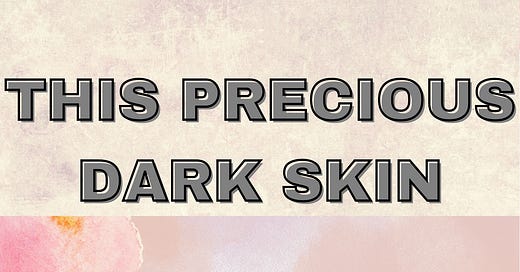
One year after the shooting, I went to a festival. A few minutes after I arrived, fireworks—which sounded like gunshots—exploded in the sky. Darkness surrounded me. My hands covering my ears, I tried to scream. But my voice was gone, only a gulp and a slight whimper escaped my lips.
When the shooting stops, you wonder: how long will I hear gunshots screaming in my ears? One year? Two?
When the shooting happened, my friend, Femi, and I were buying groceries at our local grocery store. A gunman—a 20-something tall devil wearing black from head to toe—burst into the grocery store and started shooting at people. When he stood in front of me, he toyed with the rifle, toyed with it with disturbing ease, toyed with it as if the rifle was a toy, a plaything that wouldn’t take the life out of someone. His eyes were cold—so cold they could freeze a terrified body in seconds. I wanted to beg, please don’t shoot me, but the words sat on my tongue—throwing themselves against the terror of a gunman holding my precious life and wanting out, but my tongue burned as it forgot to speak. My knees gave away and I hit the floor. When he pointed his rifle at my friend’s chest, the police bolted through the front door. The gunman missed Femi’s chest and fired at her shoulder.
When the shooting stops, you wake up, drawing a deep breath as if you might be waking up for the last time.
Days after the shooting, Femi and I needed to talk about the gun shooting. Maybe we could heal—and move on—if we talked about the shooting. But the police were not interested in hearing the shooting details—the grocery store’s walls vibrating with every gunshot sound, the floor trembling under our feet, minutes stretching into days and weeks, people whimpering on the floor, bleeding, unmoving, dead—which sat in our hearts, weighted and dark, like heavy stones.
After the shooting, Femi is not the same. Her entire life changed. She lost her work. Steep medical costs ate her savings. When I go to Femi’s home, most days, I find her sitting on her couch—a ghost who looks like my friend, her face, haunted with darkness,—staring off into space. I see him in the room. The gunman. He is not there, of course, but, in my mind, he is real, dancing, in front of my friend, wearing a smirk. The same smirk he wore on his face the day he threatened us with a rifle. I would step behind my friend and wrap my arms around her waist, resting my chin on her shoulder. She would squeeze my hand until I feel her fingernails press into my soft skin.
My friend has survived a gunshot wound, and I am so thankful for that. But, at the same time, it is like she has been taken, like I have lost her to the shooting. I miss talking with my friend. Laughing with her. I want my friend back. But I don’t know how to get her back.
In my nightmares, Femi bleeds on the floor and dies. In my nightmares, the gunman haunts me. Stalks me. Threatens me, I will shoot and kill you next time. When the sun rises, fear of the next shooting marches alongside me everywhere I go. I fear it will march alongside me forever.
Three months after the shooting, I talked to a social worker. I wished the social worker sat with me in the presence of my pain, to talk about my pain however long it took. But there was something about her eyes, a turning away from pain, like if she looked away or didn’t look pain in the eye, then trauma would not get me so deep.
I felt like a bystander—someone who watched the gun shooting on television, someone whose friend was not shot and wounded, someone who was not threatened with a rifle.
I wondered how survivors of gun shootings could move on when society preferred to not talk about gun shootings. When we’re not allowed to sit and speak from a place of pain.
After I reached home, maybe the social worker was right, I thought. A gunman had threatened me with a rifle, but I was not shot. My friend was shot and wounded, but she is alive. So why was I having a hard time when everybody expected me to move on?
Once, after the shooting, at my local grocery store—the same grocery store Femi was shot at and I was threatened with a rifle—I hovered at the front gate. A wash of blood in my ears, so loud I couldn’t hear my own breathing, couldn’t hear the traffic, couldn’t hear anything.
A loud voice, a voice coming from me, screamed in my ears—run away from the grocery store. I needed to buy my groceries. I tried. Really, really tried to push the front gate. But every bone in my body numbed—no air in my lungs, no electric currents of touch across nerve endings. My mind played the indelible images from the shooting, blood seeping on the floor, blood of innocent people who came to the grocery store to buy their groceries.
Retreating from the grocery store, I raced back home and lay on my bed, my body folding fetal position. If I was going to stop asking my boyfriend to buy my groceries, if I was going to be a functioning adult—like I was before the shooting happened—I had better learn to push through my terror. But I didn’t know how.



